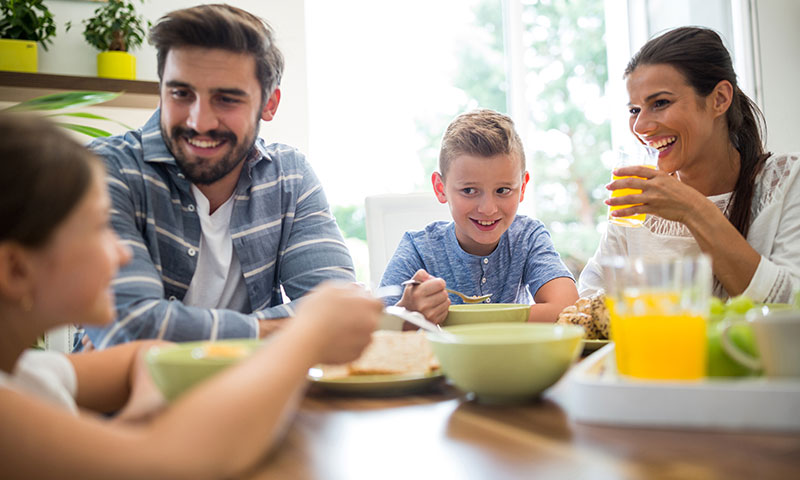A new year is a natural time to think about and set personal goals. As parents, it is a great opportunity to not only discuss the importance of exercise and healthy eating, but also to teach children the importance of setting goals. However, when it comes to living a healthier lifestyle, family support is key for success. Sitting down as a family to plan and discuss goals for the upcoming year encourages children to get involved and motivated to adopt life-long healthy habits.
Get Up & Go by Children's Health℠ shares four ways to motivate your family to live a healthy lifestyle in the new year.
4 healthy new year tips for kids
1. Make healthy resolutions fun
New Year's resolutions should be fun for the whole family. Introduce resolutions as an opportunity for children to challenge themselves, focusing on fun activities for them.
If being more active is a goal, a fun focus might be an activity your child already enjoys. This could mean encouraging them to try a new position in soccer or pick a skill they want to practice in dance class. You might also explore new ways to incorporate physical activity, such as trying online dance or yoga videos or setting up a volleyball or pickleball game with friends.
If you want your family to eat healthier, get all family members involved from grocery shopping to preparing a meal. Find new vegetable recipes or use vegetable recipes your family already loves. Give children the opportunity to choose new veggies to try at the store each week and encourage older kids to find new recipes and help prepare new meals in the kitchen.
2. Get children's input on how to reach goals
Ask children what kinds of goals they would like to achieve and help them break down a large goal into smaller, short-term goals. For instance, if the long-term goal is to eat more fruits and vegetables, a short-term goal may be to challenge your children to eat fruits or vegetables as an afternoon snack. Support your children by keeping your refrigerator stocked with healthy choices. Wash and cut produce as soon as you get home from the grocery store for easy access.
3. Organize your pantry for success
Keeping junk food in the pantry is a surefire way to break your New Year's resolution to eat healthier. It seems very simple, but don't keep tempting foods around the house.
If you and your family want to have ice cream, make a special trip rather than keep it in the freezer for constant temptation. Buy fruits and vegetables for snacking. See more tips for healthy pantry options.
Small steps like these can get your family involved and set you up for success in the new year. Lastly, parents play a pivotal role in their children's health so modeling healthy habits is key to healthy changes for children in the new year.
4. Make mental health a priority
Good mental health is a crucial part of building good overall health. Families can make mental health part of their New Year's resolutions by:
- Practicing gratitude and setting aside a little time each day to reflect on or share what you are grateful for as a family.
- Helping your child acknowledge their strengths in addition to areas where they want to improve their skills.
- Having more honest conversations about things like screen time and social media and how it might be impacting your child's mental health.
- Modeling healthy habits as a parent, for example going for a walk or reaching out to a friend when feeling stressed.
Register for a free 6-week healthy eating email series
Looking for some encouragement to live a healthier lifestyle in the new year? Sign up to receive a weekly weight management tip from clinical dietitians and physicians – straight to your inbox! Learn more and register today.

Thank you!
You are now subscribed to the Children's Health Family Newsletter.
Children's Health will not sell, share or rent your information to third parties. Please read our privacy policy.
